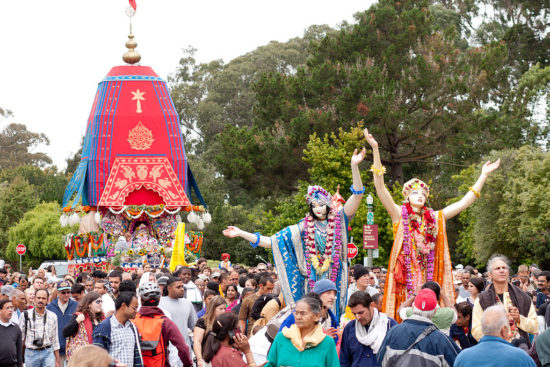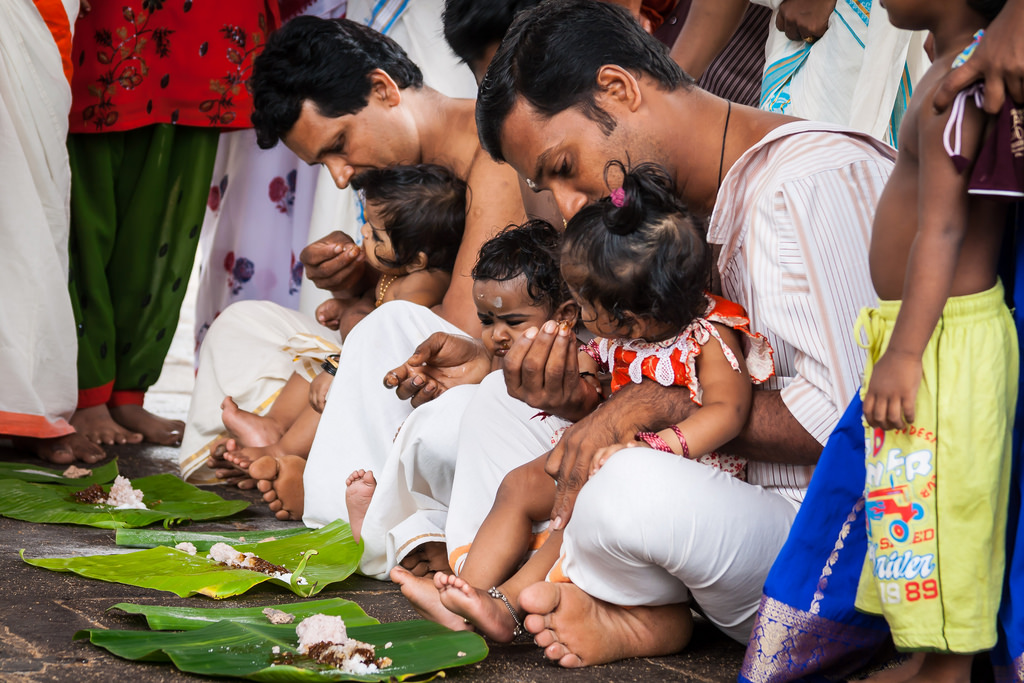Kunti and Gandhari: Feminism and the two Matriarchs of the Mahabharata
By – Ma Nithya Swaroopapriyananda
Modern Women Fight for Rights!
Modern society likes to fancy itself as feminist, giving equal opportunity to women by dissolving the social and economic barriers that have divided the sexes from the dawning of this age. The proverbial glass ceiling that caps a woman’s business and earning potential is being shattered by those who will no longer tolerate men being paid more for the same jobs done; Ivy League universities, which less than a century ago scarcely admitted a handful of female students per year, now accept an equal number of male and female applicants – in fact, 2015 statistics revealed 49% male and 51% female student bodies.
Even family dynamics are shifting, with a rising popularity in “stay at home dads” who care for their young in domestic roles while mothers opt, instead, to go to work and pay the bills. Because of all this, modern society labels itself as advanced in gender politics, proud of the acquiescence it’s making to the aspirations of women. Modern culture now shuns the old fashioned expectations for women to be relegated to the realm of supporting roles in the lives of their husbands and sons, living half lives of domestic duty and obedience. We’re now evolved. Women have never had it better. Or have they?
Vedic Women were Simply Equal to Men!
Vedic society didn’t bother assigning itself labels like “equal opportunity” to describe the rights it provided women, because in the Vedic era, there was no struggle between genders. Policies for fairness weren’t implemented, because in that idyllic time, everyone simply rose into his or her own dharmic path regardless of social conventions or outer expectations. There was an alignment between the individual’s prarabdha, (the quasi-predestined karmic results of his or her past actions,) with the infrastructure of society. There were no women’s groups fighting to gain status in a man’s world. Besides the clarity provided by the ancient rishis’ understandings of astrology and karma, the women of Vedic times didn’t need to assert their rights in a man’s world because the world of the Vedas did not belong to men.
The ancient Puranas are abundant with tales of strong women who shaped the course of civilization itself with their decisions, and who led by example, living the principles and vows they took with poise, grace, and often ferociousness. Modern society offers little girls beauty queens and movie stars, but the Puranas offer Goddesses.
Matriarchs of Two Warring Clans – Kunti & Gandhari
Two such divine matriarchs of ancient India are Kunti and Gandhari, the heads of the warring families, the Pandavas and Kauravas, respectively. Unlike western tales of family war, the Mahabharata, which, of course, is no mere literary work but is, in fact, sacred history, is rich and layered. During the battle of Kurukshetra, even as bloody battle ripped through each of their families at the hands of the other’s men, Kunti and Gandhari shared a tent on the battlefield. Even when her own sons lives were at risk, Gandhari said not, “Let my family win,” but, “Let victory go to the side of righteousness.”
Dignified Bonding Despite Adversarial Family Ties
We could learn a lot from the example of these powerful Mothers; modern psychiatry likes to pigeonhole girls and women with the stereotype of pettiness and rivalry. In an article titled ‘Feminine Foes: New Science Explores Female Competition’, Dr. Noam Sphancer, Ph.D states that “a woman who tries to distinguish or promote herself threatens other women and will encounter hostility.” The article’s point is that women are incapable of friendships with each other, since the driving force behind any woman’s life is finding and keeping a good man, and other women are merely competition. To understand the depth of love between Kunti and Gandhari, the fact that neither one perceived the other as competition, even as their own beloved sons’ lives hung in the balance, is a testament to their independent strength, and an example to the world of the possibility for genuine connection beyond selfish jealousies or rivalry.
Fueling the friendship, free from jealousy and competition between Kunti and Gandhari, stand each woman’s uniqueness and divine grace. A woman in whom divinity is expressing will be reluctant to reduce her state by indulging in petty feuds, and it’s clear that both Kunti and Gandhari had truly awakened their inner divine natures.
Tyaga – A Study of Stark Contrasts
Kunti, from a young age, was so devoted to the service of God, spiritual beings and guests that her sincerity inspired the rishi Durvasa to initiate her into a mantra that would allow her to invoke any God of her choice to conceive a child. Gandhari was an incarnation of the goddess of intelligence, Mati, and used her wisdom as she saw best fit. Each woman also acted differently, of course, and in fitting with the state of their respective families.
Kunti displayed the strength of pure tyaga, sacrifice for a greater good, and bore the pain felt by any mother who must raise her children with tough love. Her sacrifice was enriching to her life and the lives of others. Even to call her love “tough love” may be an understatement; she, in fact, told her own son not to be a mild ass, and that there is no point for him to be alive unless he is willing to fight even to the death!
Gandhari, on the other hand, though well intentioned, sacrificed in a wrong way. In effort to prove her devotion to her blind husband, she took a vow to live her entire married life blindfolded, renouncing her own vision that may well have proven useful to him.
Kunti’s sacrifice was that of her son’s love for the sake of his own higher well being; she was complete within herself whether he reciprocated with love or anger. Gandhari’s sacrifice came from a desire for her husband’s approval and affection, to prove herself, and thus went off balance; it was a sacrifice out of a deep insecurity.
In a beautiful discourse on January 6, 2014, Paramahamsa Nithyananda explained, “Self-Destruction always looks like sacrifice. Please listen, any sacrifice out of incompletion will only be self-destruction; it will not be tapas. Kunti is also sacrifice, but out of completion. Gandhari is also sacrifice, but out of incompletion. The Kunti and Gandhari are complete opposites. Sacrifice out of completion is tapas. Sacrifice out of incompletion is self-destruction.”
Moksha in a Himalayan Fire
Beautifully, though, both women, in their sincerity and inherent quest for dharma, attained grace. These two figures were more inspiring than any modern day so-called feminists, whose friendship transcended even the battle waged between their clans, remained strength and support to one another through the end. Together, they were consumed by a Himalayan forest fire where they attained Moksha, liberation.











